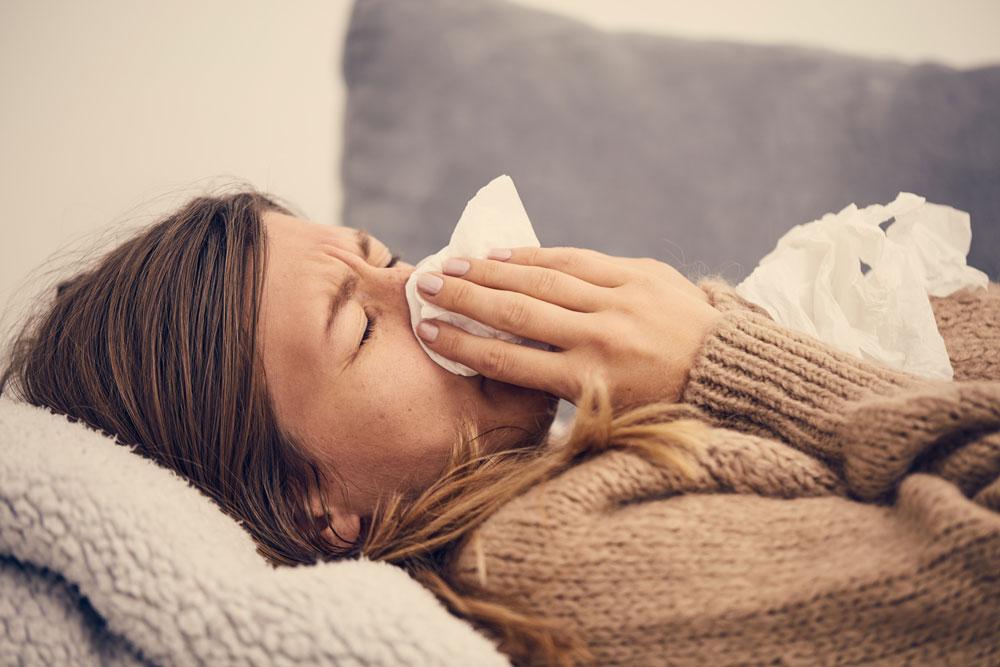With so many patients hospitalised with winter viruses, what can be done to prevent the spread in hospitals? HB takes a look at infection control in these environments.
NHS figures are showing continued pressures on services from winter viruses. In the week ending 14 January, there were an average of 452 patients with diarrhoea and vomiting symptoms in hospital each day – up by a fifth from 377 in a fortnight, and nearly a third higher than the same time last year (344).
In the same week, there were also an average 3,949 patients with Covid (up 22 per cent on 3,248 a month before) and 1,416 patients in hospital with flu each day.
People visiting a hospital are likely already ill or injured, and therefore are more susceptible to infection. For this reason, it is important that healthcare facilities meet stringent standards of cleanliness and infection control. Infections can increase the amount of time it takes for a patient to recover and therefore increases pressure on the NHS.
The Care Quality Commission says that all providers should meet or exceed the Code of Practice on the prevention and control of infections and related guidance.
The Code states: “Good infection prevention (including cleanliness) is essential to ensure that people who use health and social care services receive safe and effective care. Effective prevention and control of infection must be part of everyday practice and be applied consistently by everyone.
“Good management and organisational processes are crucial to make sure that high standards of infection prevention (including cleanliness) are developed and maintained.”
When it comes to infection control in hospitals, all healthcare providers should have an Infection Prevent and Control (IPC) policy, which is relevant to the location and specialism. The IPC policy should be regularly updated and available to all staff.
Cleaning contractors should have a schedule, which includes the frequency of cleaning specific areas, and fixtures and fittings. Particular emphasis should be placed on items that are touched frequently, such as keyboards, telephones, door handles and light switches.
What can staff do?
It is important that staff are properly trained on infection control, this includes handwashing technique, use of disposable aprons and gloves, and recognising signs of infection.
Waste disposal is an important area to manage. Bins should be easily accessible to staff and operated with a foot pedal (touch-free).
Waste should be assessed and separated properly. Hazardous waste should also be stored in a designated bin and collected by an appropriate waste contractor and staff need to know which medicines to dispose of in each bin.
Hand washing is incredibly important. Handwashing facilities must be available for every member of staff to adequately wash their hands in hot water using the correct technique. Liquid soap, paper towels and alcohol gel should be available.
Visitors
It is important for visitors to also contribute to infection prevention. Healthcare staff and cleaning teams can do everything right, but remember that visitors can bring in infection too and they are unlikely to know as much about it as those working in the NHS, who experience this every day. Educating visitors is important and can help protect patients and reduce infection in the area.
Clear signage should be displayed reminding people to wash their hands or use alcohol gel. In high-risk areas, for example, those visiting vulnerable patients, verbal instruction can be used to ensure every precaution is taken to reduce spread of infection.
People may not be admitted to a high-risk area if they do not take infection control measures.
Hand washing facilities and alcohol gel should be provided for visitors, whether patients coming in for an outpatient or other appointment or relatives visiting someone on a ward.
Everyone in a healthcare facility (staff, patients and visitors) should wash their hands when they are visibly dirty, after using the toilet, after sneezing, after contact with body fluid, before and after handling food and when visiting patients with diarrhoea.
Masks can also be provided and encouraged for visitors to reduce the spread of air-borne infections.





